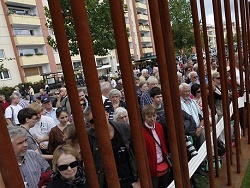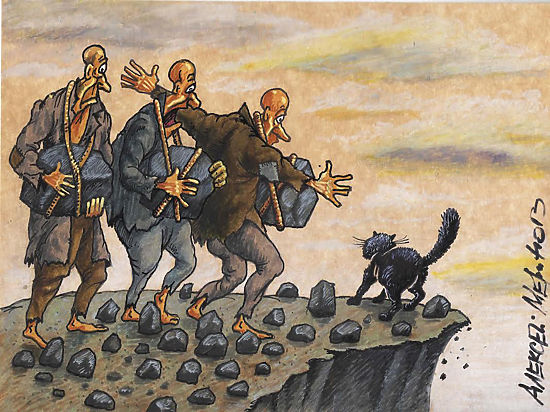
Financial Times writes that less than a quarter of a century vanished the so-called “gap in happiness level” between Eastern and Western Europe with similar incomes.
A detailed study of 51 thousand households in 34 countries conducted by the Bank, EBRD and the world Bank, concluded that the post-Communist transition period has generally led to increased incomes and poverty reduction.
Simultaneously, the researchers found that people born at the beginning of this transition period, on average, one inch shorter than those born before or after that. This phenomenon usually seen only in war zones, the newspaper said.
“One centimeter is a lot. This effect is comparable with the results of the conflict,” the newspaper quoted Sergei Guriev, chief economist at the EBRD.
The study was conducted in 29 former Communist countries and also in Germany, Italy, Turkey, Greece and Cyprus. This is the most comprehensive study of the impact of reforms in the 25 years since the collapse of the Soviet Union.
The study authors found that “the gap in happiness level” between Western and Eastern Europeans have gone to the greatest extent due to the real economic growth in Eastern Europe, but also due to the fact that the “happiness level” has fallen in countries such as Germany and Italy.
The level of income in Eastern Europe increased significantly in comparison with 1990-mi for years. But inequality in income distribution remains a serious problem.
Only 44% of the population of post-Communist countries incomes are rising faster than in the countries “the Big seven”. 23% of the population of these countries are now poorer than they were in 1989.
In Russia, the income only 20% of the population are growing faster than GDP, in difference from, for example, Turkey, where incomes and GDP grow hand in hand.
Inequality in income distribution explains why in some former Soviet republics are experiencing the movement against reforms, which, in turn, generates the return to an authoritarian system of government.
Indignation at the inequality has spread to some countries in the EU, such as Poland and Hungary.
“If you carry out painful reforms and the majority of the population is suffering, it may appear populist who comes to power by democratic means, but then conducts an audit of democratic and political structures. By the time when the fruits of the transition period, that person is impossible to dismiss, because the government controls the political system,” the newspaper quoted Sergei Guriev.
The results of the study indicate that countries that have achieved that all strata of society get the fruits of reforms are better than others retain democratic structures and pursuing a policy of market economy, writes the Financial Times.








